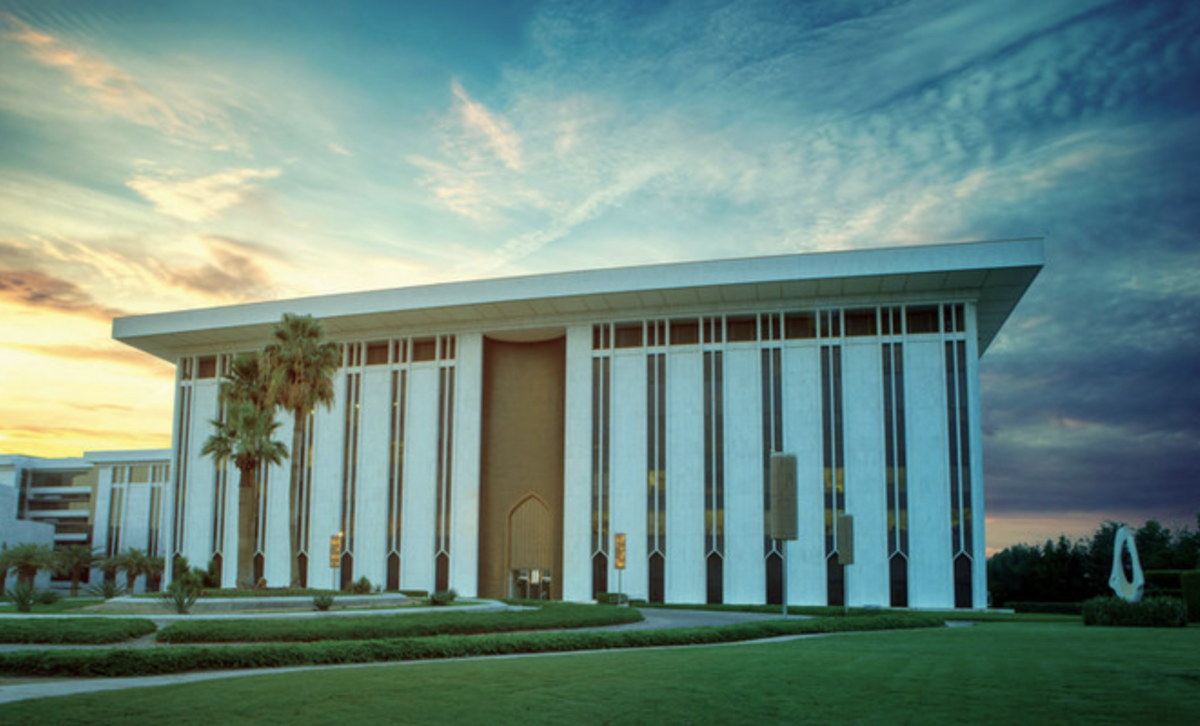RIYADH: E-commerce in Saudi Arabia witnessed a landmark year in 2024, with startups Zid and Salla leading the charge to reshape the Kingdom's — and region’s — digital economy.
These two firms have empowered merchants, enhanced digital infrastructure, and set the stage for exponential growth in Saudi Arabia’s online retail sector.
Zid: Where commerce meets innovation
For Zid, a Riyadh-based e-commerce enabler, the introduction of its “Total Commerce” vision at Ripple 2024 marked a defining moment in its scale-up journey.
In an interview with Arab News, Sultan Al-Asmi, CEO and co-founder of Zid, described the launch as a milestone that “wasn’t just a product launch; it was the unveiling of a unified ecosystem designed to redefine how merchants in Saudi Arabia — and eventually the region — conduct business.”
The platform allows merchants to manage e-commerce stores, social media sales, and physical outlets from a single dashboard.
He further emphasized Zid’s partnerships with platforms like Amazon, Snapchat, TikTok, and Meta, as well as its integration of artificial intelligence-powered tools, which are designed to “future-proof commerce in the Kingdom and across the region.”
Al-Asmi said: “Saudi Arabia’s e-commerce landscape is expanding rapidly, but logistical inefficiencies remain a significant barrier, especially for small and medium-sized businesses looking to scale globally.”
To address these challenges, Zid introduced a unified logistics dashboard to simplify inventory management and shipment tracking.
The company also launched flexible financing options to help merchants manage shipping costs and expand their reach.
“By integrating platforms like TikTok Shop and Amazon Marketplace and introducing AI-powered marketing tools, we’ve provided our merchants with innovative solutions to adapt to these changes and positioned them to capitalize on opportunities to drive sustainable growth,” Al-Asmi added.

Sultan Al-Asmi, CEO and co-founder of Zid. Supplied
The co-founder said that 2024 has been a year of exponential growth for Zid as the company transitions from “start-up to scale-up.”
Zid’s efforts have resulted in exponential growth. In 2024, its merchant base increased by over 30 percent, surpassing 12,000 active users, while the stock-keeping units on its platform exceeded 4 million.
The company also processed billions of transactions, providing valuable insights into Saudi commerce.
Al-Asmi highlighted the tangible impact of Zid’s solutions, stating, “Merchants on our platform have consistently increased both average basket sizes and conversion rates by 50 percent, reflecting the effectiveness of our solutions in driving larger transactions compared to our competitors,” he said.
“Additionally, our merchants experienced a 25 percent year on year growth in GMV (Gross Merchandise Value) and significant growth in the average number of orders per merchant, reinforcing Zid’s role as a reliable growth partner,” Al-Asmi added, going on to say that merchants who participated in Zid’s “10x” program saw their revenues grow tenfold.
In addition to its technical innovations, Zid credits its internal culture for its success. “At Zid, our culture is rooted in collaboration, resilience, and a relentless focus on merchant success,” said Al-Asmi.
He noted that the company’s leadership team draws on years of experience in Software-as-a-Service, retail, e-commerce, and technology, which has enabled the team to tackle complex challenges.
As Zid looks ahead to 2025, the company is focused on deepening its impact in Saudi Arabia while expanding its regional presence across the Gulf Cooperation Council.
Al-Asmi shared the company’s priorities for the coming year, stating, “Our priorities include further enhancing the Total Commerce ecosystem by introducing advanced AI capabilities, expanding Zid Financing to make capital more accessible to merchants, and driving adoption of cross-border commerce solutions.”
He emphasized that cross-border commerce represents a significant growth opportunity for Saudi merchants.
“GCC consumers have a deep appreciation for Saudi products due to their exceptional quality, cultural relevance, and value,” Al Asmi said, highlighting Zid’s efforts to strengthen logistics infrastructure and integrate platforms like Trendyol and Noon to its marketplace suite, which already includes Amazon Marketplace.
Al-Asmi underscored that sustaining momentum requires both innovation and collaboration.
“We plan to strengthen our existing collaboration with global platforms like Snapchat, Google, Meta, and TikTok while continuing to invest in local talent and infrastructure,” he explained.
“Our goal is to create an environment where every merchant can compete and win, regardless of size,” Al-Asmi stated. “With the groundwork laid this year, we are confident that Zid is well-positioned to lead the next chapter of commerce innovation in the region.”
The company has raised $59 million in funding to date, with its latest series B round garnering $50 million in 2021.
Salla: Empowering Saudi e-commerce growth
Salla, one of Saudi Arabia’s leading e-commerce enablement platforms, has cemented its position as a major player in the Kingdom’s rapidly growing digital economy through a series of high-profile partnerships and strategic milestones in 2024.
From securing substantial pre-initial public offering funding to integrating advanced tools for merchants and expanding digital payment solutions, Salla continues to shape the future of online business in the region.
In one of the year’s most notable announcements, Salla closed a $130 million pre-IPO investment round led by Investcorp, with participation from Sanabil Investment, a company owned by the Public Investment Fund, and STV, an existing shareholder.
“We are deeply grateful for the trust and investment from Investcorp and Sanabil in Salla, which reflects their confidence in our vision and our platform’s potential,” said Nawaf Hariri, CEO and co-founder of Salla.
The funds are expected to fuel the company’s growth as it supports over 80,000 active merchants across the region. Hariri emphasized Salla’s commitment to “empowering individuals, SMEs, and enterprises to start and expand their businesses both within and beyond Saudi Arabia.”
Salla’s platform has already enabled over $7 billion in e-commerce sales since 2020 and is tapping into Saudi Arabia’s $20 billion e-commerce market, which is projected to grow by more than 25 percent annually.

Nawaf Hariri, CEO and co-founder of Salla. Supplied
With a proprietary SaaS solution, Salla allows merchants to launch fully digitalized and automated online stores within hours, integrating payment solutions, logistics, and a suite of over 400 applications to support businesses throughout their lifecycle.
The company also strengthened its technology offering through a partnership with Adjust, a global analytics and measurement firm. This integration allows Salla merchants to access advanced app analytics tools, enabling them to optimize campaign performance and scale their businesses.
Amin Fadul, VP of Product at Salla, highlighted the benefits of this collaboration: “By leveraging Adjust’s powerful analytics and attribution tools, our users will have access to deeper insights into customer behavior, allowing them to make data-driven decisions that enhance their marketing strategies and drive growth.”
Adjust’s features, such as customer journey tracking, deep linking, and smart recommendations, complement Salla’s native mobile app maker to help merchants expand their mobile commerce capabilities.
Further enhancing its ecosystem, Salla partnered with STC Bank, Saudi Arabia’s first licensed digital bank, to integrate it as a payment option across more than 80,000 online stores powered by Salla.
This partnership offers merchants and their customers secure and convenient digital payment options directly through STC Bank accounts. By streamlining payment processes, the collaboration aims to boost digital payments and support the Kingdom’s broader digital transformation goals.
“This integration is expected to contribute to a more seamless shopping experience for online customers while reinforcing Salla’s role as a leader in the Saudi e-commerce market,” STC Bank said in its announcement.


































